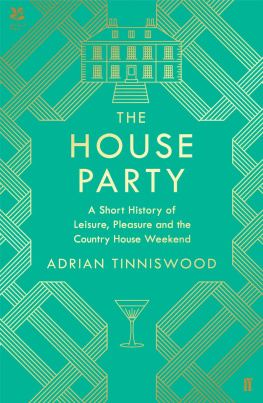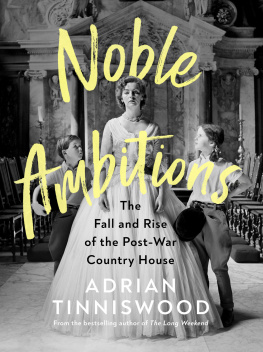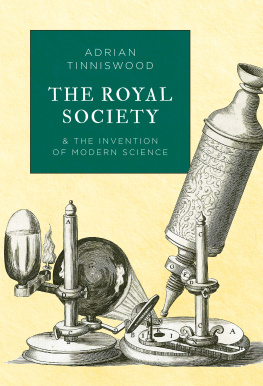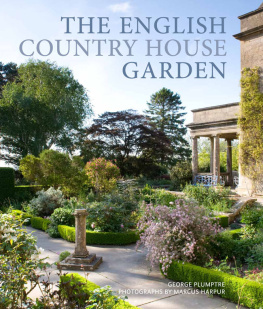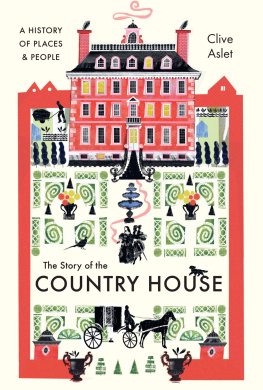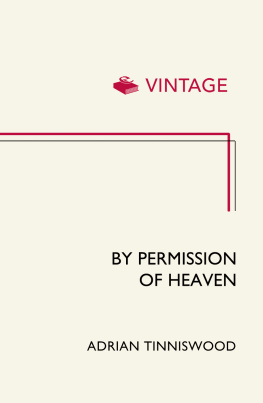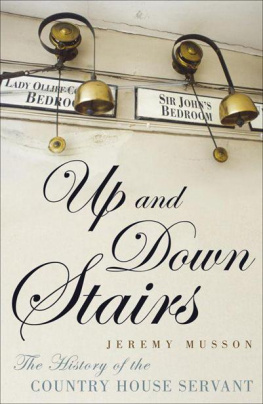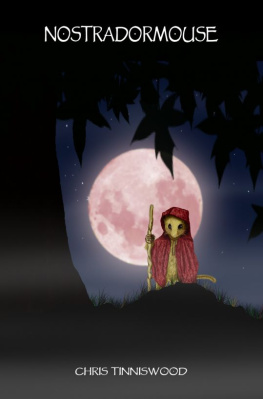The country house party occupies a special place in British culture. Whether it involves jazz and cocaine, or sherry and stilted conversation, or even a body in the library and the arrival of Miss Marple, the weekend spent in a moated manor house or a palatial Palladian villa has come to epitomise the privileged lifestyle of a tiny minority in an age which has passed. And while we might celebrate its passing, a little part of us still wishes we could have been there at the wake.
The golden age of the house party began during Queen Victorias reign, when her son and his cronies were enthusiastically drinking, gambling and fornicating their way through country houses all over Britain. It ended half a century later, when drinking, gambling and fornicating had to take second place to fighting fascism. And it comes as no surprise that the period coincided with a relaxation of social convention which allowed the new rich and figures from the arts to mix more freely in traditional landed society than ever before, challenging the old formalities. Nor should we ignore the fact that this golden age peaked in the years between the world wars, when the fusion of two lost generations the one which had washed away its innocence in the blood of Flanders field and could never forget the sights it had seen, and the other whose guilt at being too young to fight left it eager to forget the sights it hadnt seen turned the country house weekend into a game played by Bright Young Things and those who were less bright, perhaps, less young, but ultimately more enduring.
The country house has always attracted visitors. Queen Elizabeth I dropped in at Sir Thomas Lucys Charlecote in the summer of 1572 during a tour of Warwickshire, and the following year she spent five days at Knole during a progress through Kent (although since Knole was then a royal house, she was technically both host and guest). In 1576 she spent a couple of days with Sir Thomas Gresham at Osterley in Middlesex, where she famously remarked that his new courtyard would appear more handsome if divided by a wall in the middle. Gresham summoned workmen from London and overnight they made the Queens wish come true, leading the court wits to comment on some family problems that Gresham was having, saying it was easier to divide a house than it was to unite it.
More than a century later William of Orange visited Sir John Brownlow at Belton, his new house near Grantham. in Lincolnshire. Brownlow showed the king such a good time, and left him with such a horrible hangover, that William couldnt face the feast that was provided for him when he arrived at Lincoln the next day. George III and
Unwary guests who spent a night at Seaton Delaval in the eighteenth century found themselves falling victim to some rather trying practical jokes. Their hosts, the Delavals, fitted out their magnificent Northumberland mansion with a range of elaborate devices, all designed to embarrass, confuse and humiliate. For example, having retired for the night, a visitor might be in the middle of undressing when mechanical hoists raised their bedroom walls like theatrical scenery, exposing them to view and, presumably, to ridicule. Or they could be wakened abruptly from dreamless sleep as their bed was lowered into a bath of cold water by a system of ropes and pulleys operated by a Delaval lurking next door. A guest who had drunk too much might be put to bed in the dark; when they eventually roused themselves the next morning, they would be astonished to discover they were lying on the ceiling of their bedroom: the rooms furnishings were inverted, with chairs and tables stuck to the ceiling and a chandelier standing up in the middle of the floor.
Friends, neighbours, relations, even passing celebrities might arrive at ones country house, sometimes with little or no notice. Mary Elizabeth Lucy and her husband George were still in bed at Charlecote one morning in January 1828 when they heard the ringing of their front door bell, and a maid came to tell them that Sir Walter Scott and his daughter were downstairs. Dont I remember our hurry to get dressed, Mary Elizabeth recalled, when we heard who it was that had arrived and were waiting for permission to see the house.
Scott only stayed for a couple of hours, in spite of being pressed to stay longer. But in a slightly later age, when the rail network was in its infancy and roads were often impassable in bad weather, an extended visit was the norm. Typical of the early house party was the occasion in the 1850s when Mary Elizabeth Lucy, now widowed, and her daughter Carry had a charming expedition to Eywood in Herefordshire, where they were the guests of Lord and Lady Langdale for a fortnight. There was a large party, including a Count Teleki, a Hungarian fortune-hunter who was courting Lady Langdales daughter and who subsequently married her, only to leave her three days after the wedding, announcing as he went that he already had a wife and family in Hungary. In fact it was quite a cosmopolitan group, with an unnamed Polish nobleman,
One tends to assume that mid-Victorian house parties were sedate affairs. Not this one. In the course of a long walk through a meadow, the group came to a ditch, which they all managed to negotiate except for a Miss Bickersteth, who declared she couldnt possibly jump it. Count Teleki promptly lay down at full length across the ditch and invited her to use him as a bridge, which she did, and we all screamed with laughing. After dinner Monsieur Remery stood at the top of the stairs and played his wild wizard-like music, while the rest of the men showed off by leaping over chairs. Teleki and the Polish baron challenged the others to balance on the top banister rail of the main staircase, and Mr Thomas, his manhood impugned by these foreign upstarts, immediately declared he could do it. He couldnt. In fact he fell on Mary Elizabeths head, and knocked me down flat on my knees, most fortunately for him as had he fallen on the marble floor in all probability he would have been killed. Everyone (except Mary Elizabeth and Mr Thomas,
*
In December 1901 Buckingham Palace announced that Edward VII and Queen Alexandra would be making a royal visit to the island of Ireland, then all still part of the United Kingdom. Building on Queen Victorias successful visit of April 1900, the plan was for the royal couple to spend a week in Dublin, staying at the Viceregal Lodge in Phoenix Park, the summer residence of the Lord Lieutenant of Ireland. (He had to move out.) Although this was to be a very public occasion, the King and Queen also planned to make two semi-private visits, one to the Duke and Duchess of Devonshire at Lismore Castle down in County Waterford, and the other to the Marquess and Marchioness of Londonderry at Mount Stewart on the Ards Peninsula in County Down, fifteen miles from Belfast.

